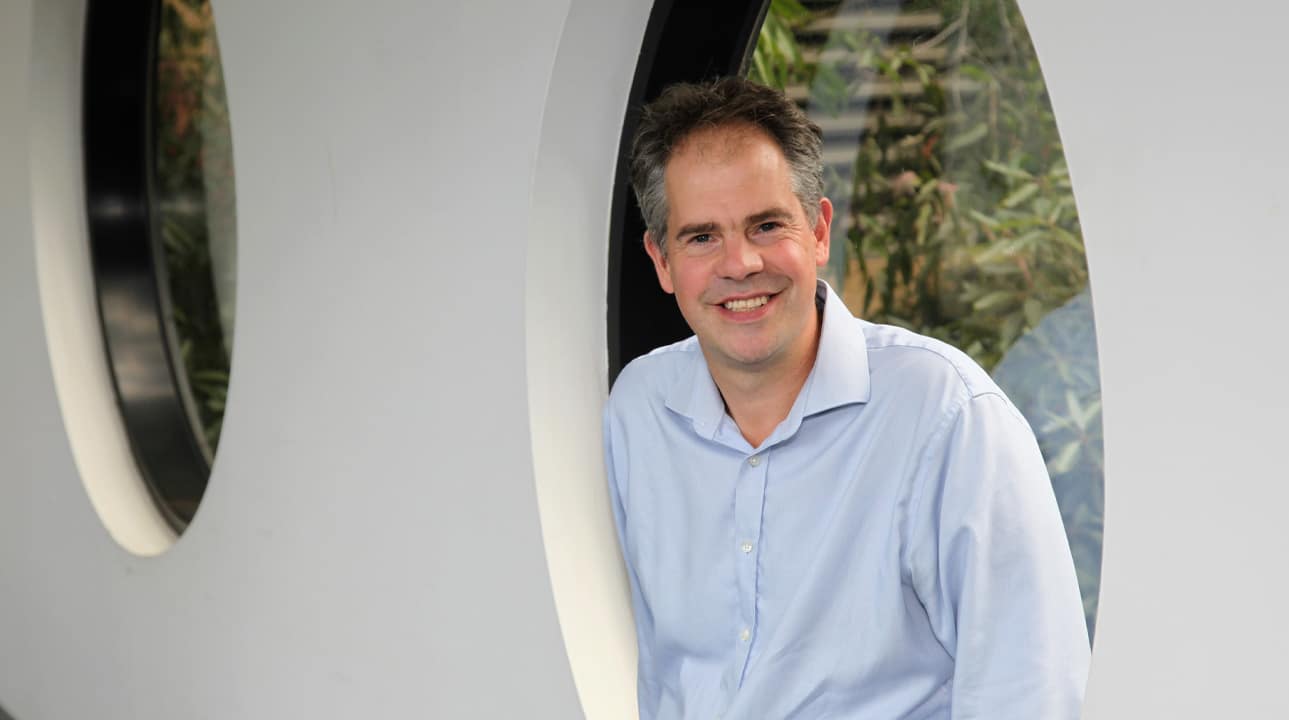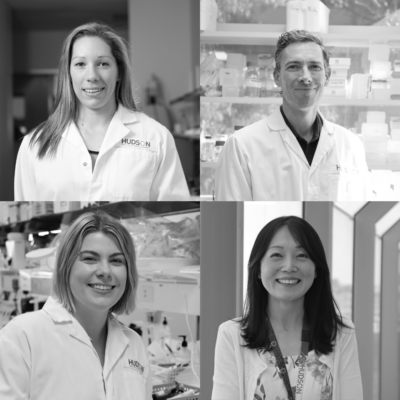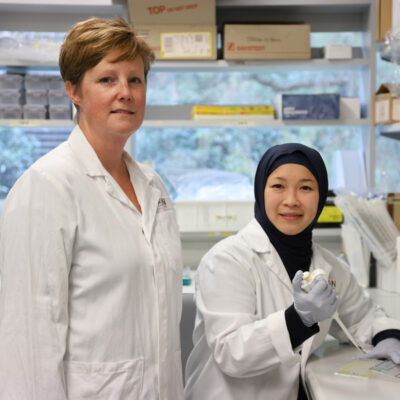Can IBD be cured?
By Rob Clancy, staff writer

The secrets to what controls the body’s inflammatory responses hold the answer to a question thousands of Australians are asking: “Can inflammatory bowel disease (IBD) be cured?”
Paediatric gastroenterologist and Senior Research Scientist Dr Edward Giles has seen the effects of inflammatory bowel disease on people of all ages, particularly children.
What is IBD?
“Inflammatory bowel disease has two main forms – Crohn’s disease and ulcerative colitis — both incurable disorders, where the immune system attacks the bowel, despite there being no infection to fight,” Dr Giles said.
What are IBD’s symptoms?
Symptoms can range from bloody diarrhoea to involuntary weight loss, and even joint swellings or eye inflammation.
It’s a condition 23-year-old nurse Marisa Coniglione knows all too well. She’s had ulcerative colitis (UC) since she was 11, and Dr Giles is her treating specialist. “UC is invisible – no-one understands the suffering, so it doesn’t get public attention,” she said.
Its impacts on her young life have been profound: “I had a lot of time in hospital when I should’ve been at school.”
Can IBD be cured?
Marisa now works in the emergency department at Monash Health – Casey Hospital, and takes extra interest in patients with IBD.
“Often they’ve just been diagnosed, so there’s a lot to get used to,” she said.
While Marisa forges her own career in healthcare, Dr Giles is working on new avenues for IBD treatments, looking for the answer to that question: Can IBD be cured?

“Our research aims to understand how the body reacts to the trillions of bacteria and other bugs inside us — our microbiome,” he said. “By doing this, we can identify newer and safer treatments than our current agents that are not completely effective and have significant side effects.
“We also are hoping to better understand the relationship between diet, the microbiome and immune response. By doing this we will make better and more personalised treatments for patients and hopefully learn how to prevent the disease altogether.
“The goal of our world-leading research into the microbiome and immune response, is to deliver the next generation of treatments for the millions of IBD sufferers worldwide.”
Marisa’s message for Dr Giles and his colleagues is a simple one: “Thanks for the research — it always gives me hope that one day I’ll be OK.”
In this article
About Hudson Institute
Hudson Institute’ s research programs deliver in three areas of medical need – inflammation, cancer, women’s and newborn health. More
Hudson News
Get the inside view on discoveries and patient stories
“Thank you Hudson Institute researchers. Your work brings such hope to all women with ovarian cancer knowing that potentially women in the future won't have to go through what we have!”





